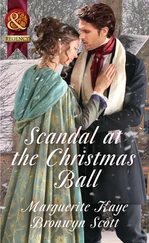“I know the feeling too well.” Her laughter faded as her memory spewed forth the day Roland Utting and she had last made plans for their future. He had asked her to wait for him and told her that they would marry when he came back from the war against the French and the Americans. That had not gone as they had planned, because, though she had waited, he had never come back, dying in distant America.
“I am dripping on your floors,” Mr. Bradby said, forcing away the image of the day when she had believed that God truly wanted her to be happy. “Are the rooms I used before available for me?”
Instead of answering him, she asked, “Who is this big guy?” She patted the puppy between his floppy ears as the footmen and Ogden returned to their duties. The pup rolled onto his back so she could rub his damp belly.
“A stowaway in my carriage.”
She bent to pet the puppy’s belly and cooed nonsense words, then asked, “A stowaway? I thought that was only for ships.”
“I have no other idea how to describe him. He crawled into my carriage after I had stopped at a coaching inn one night. When I went back, the owner told me that the pup was now my problem. I think the innkeeper was glad for an excuse not to feed him any longer. I stopped at a couple of villages along the way to see if someone wanted a puppy. No one wanted one this big, so he has traveled with me.”
“What did you name him?”
“I just call him pup. He seems to like it.”
Straightening, she smiled. “Because he knows no better. Don’t you think he deserves a name of his own?”
“So far he has chewed one of my boots and two of my socks and swallowed a button that he threw up on my best waistcoat.” His tone was grim, but his pale blue eyes twinkled with amusement. “He has left hair on the seat of my carriage and relieved himself on its wheels. I am not sure he deserves a name of his own.” Despite his complaints, Mr. Bradby tethered himself to the dog with a leash.
Catherine squatted to pat the puppy again. “We shall have to see what name suits him.” She stood. “Shall we talk in a warmer part of the house?”
“Of course.” He motioned with the hand holding the leash for her to lead the way.
She took a single step before her heel caught on the rough edge of a tile. He grabbed her arm, and his other arm swept around her to keep her from falling. He held her up against his strong chest until she was steady on her feet; then he bent to pick up the leash he had dropped.
“Thank you, Mr. Bradby,” she said as she carefully drew herself away from him without looking in his direction.
“I am glad to have been of service. So tell me, how are the wedding plans coming?”
“As well as one can possibly hope.” That was not quite the truth, but she was not going to lay all her worries at Mr. Bradby’s feet.
“Your cousin tells me that you will be going to London for the opening of Parliament. You must be excited.”
She glanced at him, then quickly away. What would he think if she told him that she had a single reason to go to London? She planned to visit the new exhibit at the British Museum of the sculptured panels that once had graced the Parthenon in Athens. The Elgin Marbles, as they were commonly called. She was going to see them, not just for herself, but for Roland who never had the chance.
Dear Roland, the only man who ever understood her love for art and did not consider it worthless. The only man whom she had ever trusted with her heart. She blinked back tears. The two years since his death in battle had not lessened how much she missed Roland.
Instead of answering Mr. Bradby, she ruffled the pup’s fur.
His tail wagged so hard it almost became invisible as he looked up at Cat with adoration.
“What do you say, pup,” she asked, “if I take you to the kitchen and see what scraps Mrs. Porter has? You can chew on a bone by the fire tonight.”
Mr. Bradby shook his head. “You don’t need to impose on your cook. He can sleep in the stables with the horses. After all, he is about the same size.”
“He may be big, but he is a puppy. It will be very cold outside tonight, and he will be far more comfortable by the kitchen hearth.” She smiled at him. “Don’t try to change my mind on this.”
He grinned back. “Thanks for the warning, Miss Catherine, but to own the truth, I suspect that your cook will soon be begging you to send him to the stables.”
“Why?
“He snores. Loudly.”
Catherine laughed as they and the pup walked along the corridor toward the kitchen stairs. It was good to have Mr. Bradby’s sense of humor back under their roof. She was sure to need it in the coming days.
* * *
Why was he here?
As Jonathan Bradby strode toward the grand staircase at the front of Meriweather Hall, he reminded himself that he could have ignored the request from Edmund Herriott. He could have remained in his comfortable home in Norwich, where he could admire the cathedral’s spire from his office window. Instead, he had driven north along the coast to Meriweather Hall. The estate had been inherited by Herriott—no, he needed to think of him as Meriweather now that he had claimed his title—upon the death of his distant cousin...Miss Catherine’s father.
Jonathan had, if he were honest with himself, looked forward to seeing Miss Catherine again. When he had visited the baronial estate two months ago, she had always laughed at his jests rather than looking at him with pity, as others did, when he acted silly.
Acted...
He ground his teeth as his jaw worked. Was he becoming just like the rest of his family? Their lives were one continuous illusion. His siblings played roles, changing like chameleons to attract an admirer with both title and wealth, as they took advantage of the social whirl. Creating such a persona was a skill they had learned from an early age, when their parents had chosen to live separate lives but maintain the image of the perfect family.
Now he had become like them, pretending that a lie was the truth. Everyone believed he was a hero who had saved his best friend’s life on the battlefield. If he had spoken up the first time someone had lauded him for saving Northbridge, he would not have to be living now with the abhorrent lie. But he had not admitted that he had stumbled and slammed into the French soldier. It had been enough to keep the Frenchman’s sword from slicing off Northbridge’s head, leaving his friend only with a scar where the blade had glanced off his cheek.
But that did not make Jonathan a hero. It made him a clumsy oaf, as his father had called him so often, when Jonathan was struggling to get used to growth spurts that had him sprouting up two or more inches seemingly overnight.
He should have told the truth from the beginning. Now it was too late, and he had become the very thing he despised. An illusion that everyone accepted as the truth. He had no idea what his friends would think of him, if they discovered the truth now, but he also did not know how much longer he could live what both he and God knew was a lie. He often wondered if God had let him leave the battlefield alive in order to right the mistake he had made. If so, he was letting God down a second time.
“Bother!” came Miss Catherine’s voice through an open doorway just in front of him. “You didn’t do that, did you? I cannot believe this!”
Jonathan waited to hear a reply, but there was none. Curiosity drew him to the door that was flanked by suits of armor. He looked in to see a fire dancing on the white marble hearth. Carved with vines and birds and lush grapes, it was too ornate for his taste. Books covered every shelf in the bookcases that lined the other walls, and more were piled on the floor and on the overstuffed chairs.
Читать дальше












